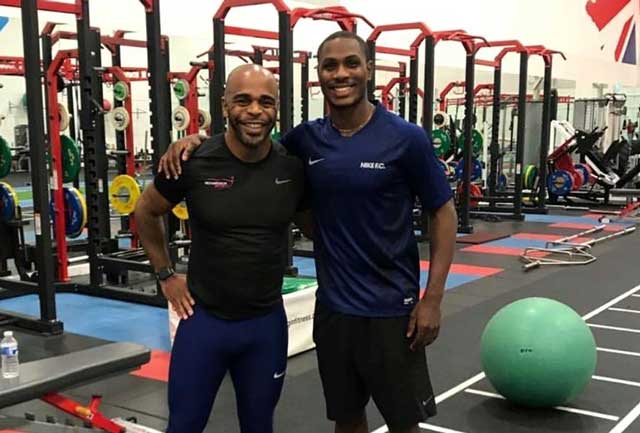
Football mentor has hands full during virus lockdown
by The IndependentLondon, United Kingdom | AFP | Fitness coach and mentor Wayne Richardson has had his hands full dealing with footballers’ mental health issues in a period of unprecedented uncertainty during the coronavirus lockdown.
Richardson and his staff have spoken to about 150 players, from professionals all the way down to the grassroots during football’s hiatus.
Players have reported a number of issues, from being unable to play PlayStation with their friends to a lack of training facilities at home, but there is a common thread.
“Commonplace from grassroots, academy, scholar to first-team, players are finding it boring,” he told AFP by phone from his home in Manchester in northern England.
“‘I cannot go to my girlfriend’s, I cannot drive here or there, go to the shop.’ We have to try and keep that in check and tell them it won’t last forever.”
Richardson set up his company, Richardson Sport, with Emma Hughes in 2010. His team including fitness coaches, nutritionists, psychologists and sports mentors.
Richardson, whose recent clients include Manchester United player Odion Ighalo, says uncertainty is rife among players, although some are now preparing for a return to action.
“We work on some areas we don’t usually spend a lot of time on, listening to their worries,” he said.
“Some don’t know if they will be asked to sign a new contract and we focus on ‘are there other options for you like another career, further education?'”
– Mental health –
The Professional Footballers’ Association released figures earlier this month from a survey carried out during the pandemic that showed more than a fifth of current and former players had reported being depressed or had considered self-harm.
Richardson himself experienced a profoundly upsetting episode in 2006.
He had spent hours talking to a footballer whose girlfriend had told him she was pregnant by somebody else. Richardson advised the player to take a paternity test.
“I received a text message off one of the guys (friend of the footballer) ‘Wayne, he won’t be in tomorrow’,” said Richardson.
“I will never forget this part — ‘x has been found hanged’. It just shows you don’t know what is going on behind the scenes.”
Richardson said players also needed practical help.
“They might have been offered new contracts and then got injured and the coach might have said unfortunately ‘we don’t know whether we can keep you on’,” he said.
“That creates doubt for that player firstly in getting himself fit and what will happen next.”
Richardson said one of the players he has talked to had plans to go to Scotland but the move hit trouble because two of the clubs who were interested had put their players on the government’s furlough scheme.
Richardson, who previously worked in projects to tackle gang crime, grew up in the tough Manchester inner-city neighbourhood of Moss Side — plagued by high unemployment and drug problems.
He overcame his family’s scepticism that he would have a career in football and has worked with a number of high-profile clubs including Manchester City and Leeds United.
Richardson said having a career observing footballers up close had shown him that they have to deal with the same issues as everybody else
“The amount of money they are being paid, everyone will always look at the negative side of football,” he said.
“No matter what, they are all human beings, they still eat and go to the toilet and go through other daily routines we do.
“However, in the public’s eyes they are in a privileged position.”
Despite all the help he can offer, Richardson is aware of the stark reality that this can only go so far.
Speaking about the players he helps, he said: “He will shake your hand or hug you when he leaves but you can’t control their life.
“Sometimes it is overwhelming dealing with everything and you can’t save the whole world.”
Share on: WhatsApp